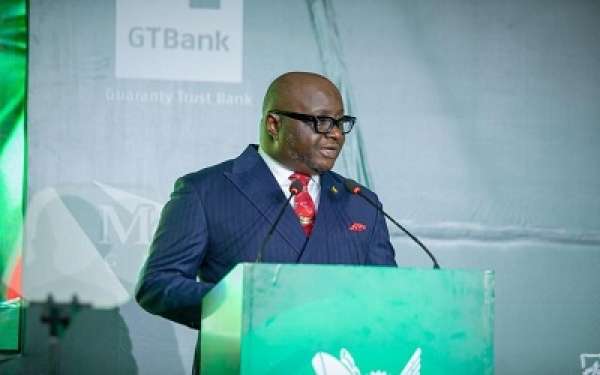“AfCFTA is our only solution of self-reliance in Africa” – CEO of GFZA
The time to walk the talk is now and the GFZA is ready to take this charge in tandem with the Africa Continental Free Trade Agreement (AfCFTA) Secretariat and the Ministry of Trade and Industry (MOTI).
Chief Executive Officer (CEO) of the Ghana Free Zones Authority (GFZA), Mike Oquaye Jnr, has said that Ghana’s prosperity lies in taking advantage of the Special Economic Zones (SEZs) present.
Oquaye Jnr said sustainability is becoming a topical issue and the SEZs have been identified to be the model and a starting point for the rest of the continent.
He was speaking at a meeting of Chief Executive Officers of Free Zones Enterprises as part of the third Annual Investment Week themed GFZA: Championing Export-led Industrial Growth; In The Context of AFCFTA and World Trade.
Mr Oquaye Jnr said it is clear after the COVID-19 and Russia-Ukraine war that, traditional supply chains from Europe, America, China, India, and Turkey among others cannot sustain the needs of Africa.
He said: “We need to drive our own business cars and fly our own business jets all over Africa and therefore the AfCFTA is our only solution of self-reliance in Africa.”
The time to walk the talk is now and the GFZA is ready to take this charge in tandem with the Africa Continental Free Trade Agreement (AfCFTA) Secretariat and the Ministry of Trade and Industry (MOTI).
Mr Oquaye Jnr said green development would be a priority in developing new free zone enclaves, under the Ghana Free Zones Agency in charge of SEZs.
Benefits of Free Zones
He noted that Ghana currently has 217 active free zone enterprises, adding that cumulatively, the free zone enterprises have made export earnings of over $27 billion employing about 33,000 people directly with over 31,000 being Ghanaians.
He urged all companies to ensure the submission of their quarterly returns and audited financial statements, noting that some companies had not submitted their returns
This lack of submission of quarterly returns is affecting the Authority’s accurate data for management reporting and decision-making.
Mr Oquaye Jnr said government agencies are not to be seen as barriers, but as facilitators and promoters of business, which calls for cooperation between all government agencies as well as the private sector.
Export promotion critical
The Minister for Trade and Industry, Mr Alan John Kwadwo Kyerematen said now is the time to promote exports as a nation more than ever.
He noted that as a country and as a growing economy, we must be able to produce our basic needs, as well as have the abundance to promote exports for foreign exchange.
The sector Minister said apart from the job creation and technology transfer that the free zones regime offers to help strengthen the economic fibre of the country, it is a fact that the free zones is actively playing a role in the export-led industrial growth which is an essential way to move the nation forward.
He said the AfCFTA National Coordination Office is working strenuously to ensure the smooth export of products from Ghana, noting that they are currently training officers of all relevant stakeholder agencies in the export value chain to enable them to provide the right information to investors and business people.
GFZA AfCFTA desk
He indicated that there will be desk offices dedicated to AfCFTA matters, noting that the GFZA would soon have a desk office to assist free zone companies interested in exploring the African market to access information through that office.
Taking full advantage of AfCFTA
He said as a Minister of Trade and Industry, who has been involved in drafting the AfCFTA policy and protocols, “I am very much interested in seeing businesses take full advantage of the opportunities, especially the free zone enterprises who are already familiar with export.”
Special Economic Zones Policy underway
Mr Kyerematen said the Ministry is working on a Special Economic Zones Policy as most African countries have moved from pure export processing zones to special economic zones which is a broader concept in industrial development.
Source: Julius K. SATSI || The Finder, Accra



Your point of view caught my eye and was very interesting. Thanks. I have a question for you.